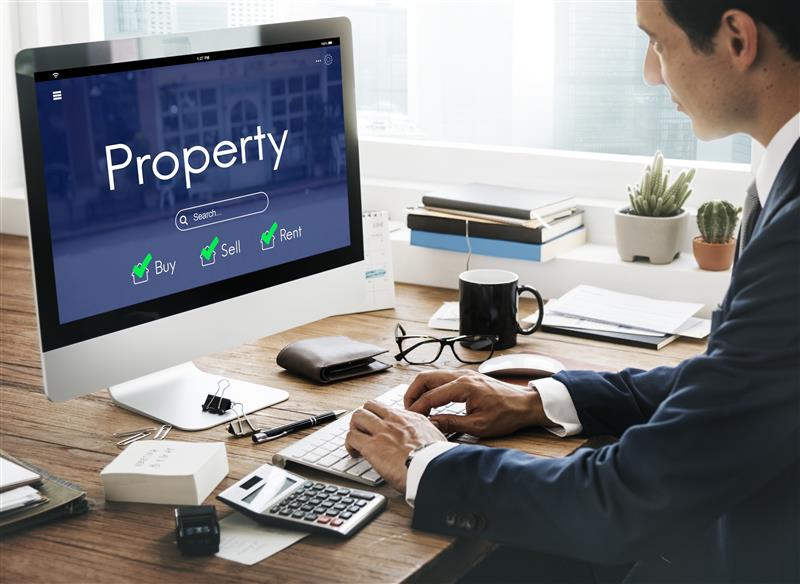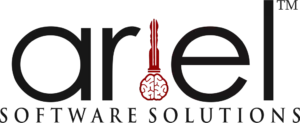
Eviction is often one of the most dreaded tasks for property managers and landlords. The entire process, from identifying late payments to filing the appropriate legal notices, can be tedious, stressful, and costly. However, the landscape is changing. Property management software with automated eviction filing is transforming this traditionally manual, error-prone, and time-consuming process into a streamlined and efficient operation.
In today’s fast-paced world, property managers face the constant challenge of keeping operations smooth while also ensuring that legal requirements are met. Late rent payments are an unfortunate reality, and when payment issues escalate, eviction becomes an inevitable next step. But what if the process of moving from late rent to legal action could be automated, saving both time and costs? With the power of LegalTech and Ariel Software Solutions, eviction automation is no longer a futuristic concept, it’s a present-day solution.
The Traditional Eviction Process: Time-Consuming and Error-Prone
Before the introduction of automation, evictions required considerable manual effort. The traditional process included several steps, each of which involved complex documentation, strict legal timelines, and repetitive communication. Let’s explore the traditional eviction workflow in more detail:
- Monitoring Tenant Payments:
The first challenge in eviction management lies in tracking tenant payments. Property managers had to manually monitor each tenant’s payment history and check for overdue rent. This task was not only time-consuming but prone to human error. Property managers might overlook tenants who have missed a payment, and this oversight could delay the initiation of legal action.
- Sending Reminders and Notifications:
Once late payments were identified, property managers had to send multiple reminders to tenants. These reminders included phone calls, emails, or physical letters requesting payment. This process was often tedious and could take a significant amount of time, especially for large properties with multiple tenants.
- Preparing Legal Documents:
If the tenants didn’t pay after several reminders, property managers had to prepare legal notices and eviction letters. These documents needed to adhere to complex local and state laws, and any mistake in documentation could delay the process or lead to legal issues. Preparing these documents often required significant legal expertise, which many property managers didn’t possess.
- Court Filings and Legal Representation:
Once the eviction notice was issued, the next step was to file the necessary documents in court. In some cases, landlords had to hire attorneys to navigate this process. Court filings require a high level of legal expertise, as errors could invalidate the filing and lead to further delays.
- Follow-Up Procedures:
Even after filing, landlords had to continuously follow up, wait for court dates, and manage further communication with tenants. This prolonged the process, leading to high administrative costs and potential tenant dissatisfaction.
This manual, labor-intensive process was not only inefficient but often stretched across several weeks or even months. It consumed significant resources, making it difficult for property managers to focus on other critical tasks.
Automating Eviction Filing: The Future of Property Management
In response to these challenges, Ariel has developed automated eviction filing capabilities that are revolutionizing the way eviction processes are handled. By using property management software and LegalTech, Ariel’s platform streamlines the entire workflow, from identifying late payments to filing legal documents and managing communication with tenants.
Let’s delve into the core components of eviction automation and the technology driving this transformation.
- 1. Automatic Payment Monitoring:
Eviction automation begins with automatic payment monitoring. Traditional property management software often rely on manual entry, which leaves room for human error. With Ariel’s automated system, tenant payment data is tracked in real-time, and any missed or late payments are flagged immediately. This allows property managers to identify delinquent tenants without manually checking every account.
The system uses predictive analytics to assess the severity of delinquencies. If a tenant’s payment history indicates a potential risk for future non-payment, the system can flag this early on, allowing property managers to act proactively and prevent further complications.
- 2. Automated Document Generation and Legal Compliance:
One of the most tedious parts of the eviction process is preparing the necessary legal documents. With eviction automation, this process is handled entirely by the software. Whether it’s sending initial reminders, issuing eviction notices, or filing documents in court, the eviction automation platform automatically generates the necessary documents in compliance with local and state laws.
This automated system not only ensures accuracy but also reduces the potential for legal mistakes. By using templates and automated workflows, the platform guarantees that all legal documentation is correct and compliant with the applicable laws of the jurisdiction. Furthermore, automated document generation eliminates the risk of human error, such as using outdated forms or making clerical mistakes that could delay the process.
- 3. Seamless Communication with Tenants:
Communication is key in the eviction process, but it’s also one of the most time-consuming aspects. Property managers must send reminders, warnings, and updates to tenants regarding their overdue payments and potential eviction. With eviction automation, these communications are automated, reducing the administrative burden on the property manager.
The system automatically sends out a series of pre-configured notifications at each stage of the process. From late payment reminders to legal notices and payment plan offers, tenants are kept informed and updated throughout the entire process. This automated communication also ensures that landlords and property managers can stay in compliance with laws regarding tenant notification.
- 4. Legal Filing and Court Preparation:
Filing legal documents in court is one of the most complicated steps in the eviction process. However, with Ariel’s automated filing feature, this step becomes much simpler. Once a tenant is sufficiently delinquent, and after automated reminders and notices are sent, the system prepares the necessary court filings and submits them electronically.
This automation drastically reduces the time and cost of legal representation. Traditionally, property managers would need to hire external attorneys to handle this task, but with Ariel’s system, filings are made directly through the platform, ensuring that all legal standards are met. This removes the need for expensive legal fees and reduces the chances of error.
The Benefits of Automated Eviction Filing with Property Management Software
The transition from traditional manual processes to automated eviction filing offers several key benefits for property managers, landlords, and even tenants. These benefits include:
- Time and Cost Savings:
One of the most significant advantages of eviction automation is the time and cost savings. Manual evictions can take weeks or even months to complete, with costs adding up in legal fees, administrative work, and potential lost rent. With automation, property managers can reduce the entire eviction timeline by days or weeks, cutting legal costs and reducing the amount of time spent on paperwork.
Using the best property management software can significantly speed up this process.
- Improved Accuracy and Compliance:
By automating the creation and filing of eviction documents, Ariel’s platform ensures that everything is handled accurately and in compliance with the law. This minimizes the risk of errors that could result in delays or legal challenges, such as improper forms or missed deadlines.
- Enhanced Tenant Communication and Relations:
Automated reminders and notices ensure that tenants are kept in the loop at every stage of the process. Clear and consistent communication reduces misunderstandings and tensions between landlords and tenants, improving overall relations. Automated communication also offers tenants opportunities to resolve their late payments before the situation escalates to eviction.
- Reduced Workload for Property Managers:
Eviction automation reduces the administrative burden on property managers by eliminating much of the manual work involved in managing delinquent tenants. This enables property managers to focus more on other aspects of property management, such as leasing, tenant retention, and property maintenance.
Integrating the best property management software can make all the difference in streamlining these tasks.
A Technical Look: How Ariel’s Eviction Automation Works

Ariel Software Solutions uses a combination of cloud-based architecture and workflow automation to power its eviction filing solution. Here’s how the system works:
- Real-Time Payment Tracking:
Ariel’s cloud-based system tracks tenant payments in real-time, updating statuses across all platforms. Property managers are instantly notified when payments are late, ensuring immediate action can be taken.
Cloud solutions play a key role in enhancing the efficiency of automated systems. As discussed in ‘The Future of Hybrid Cloud: Trends and Solutions for 2025’ hybrid cloud systems provide the scalability and security needed for handling large amounts of data while ensuring real-time updates. Ariel’s eviction automation leverages this to seamlessly track payments and handle document filings.
- Automated Payment Analysis:
The system uses automated payment analysis to flag tenants at risk of future delinquencies based on their payment history. If a tenant has a record of late payments, the software alerts property managers earlier in the process, allowing for proactive intervention.
- Automated Workflow Integration:
From sending reminders to filing court documents, Ariel’s system integrates automated workflows. These workflows streamline the entire eviction process, ensuring timely action and reducing the chances of errors or delays.
Conclusion
Eviction is a difficult but necessary aspect of property management. With the rise of LegalTech, automated eviction filing is revolutionizing the way landlords and property managers handle delinquent tenants. By automating the process, from identifying late payments to filing legal notices Ariel Software Solutions is helping property managers save valuable time and money, while also ensuring compliance and improving tenant communication.
If you’re ready to experience the benefits of eviction automation, streamline your workflow, and cut down on unnecessary costs, contact Ariel Software Solutions today. Our cutting-edge LegalTech platform is designed to make property management easier, faster, and more efficient.
Let us help you manage your eviction process with precision and ease so you can focus on what truly matters, growing your business. And if you’re looking for the best accounting software for landlords, our platform can simplify this aspect, too, saving you time and effort in managing finances.




